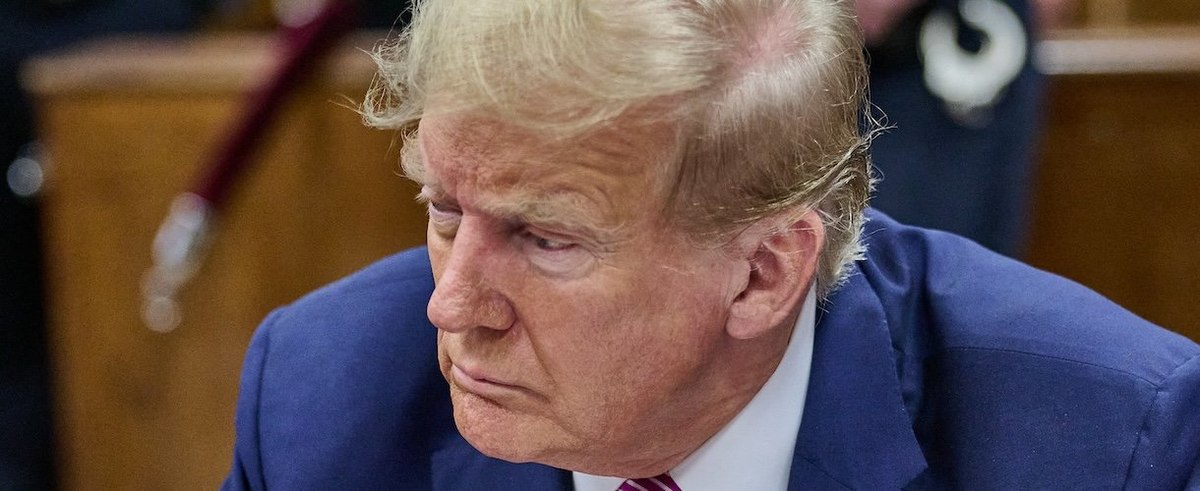Just one-quarter of Americans (24%) expect Donald Trump to be convicted in his ongoing New York trial over allegedly falsifying business records to conceal a hush-money payment to an adult film actress. That's less than the 36% who think the former president won't be convicted, with the rest (39%) unsure.
But more Americans (43%) say Trump should be convicted in his hush-money case, while 37% say he shouldn't.
While Republicans are much more likely than Democrats to think Trump shouldn't and won't be convicted, there are divisions among Republicans on these questions.
Republicans who identify as MAGA Republicans overwhelmingly say Trump should not be convicted — 95% say no, and less than 1% say yes. They're also the least likely to think he will be convicted, with 61% saying Trump won't be convicted and 8% saying he will. By contrast, Republicans who don't identify as MAGA Republicans are 32 percentage points less likely than MAGA Republicans to say Trump shouldn't be convicted, and 17 percentage points less likely to say he won't be convicted. The Republicans who don't identify as MAGA are much more likely than Democrats and Independents to oppose a Trump conviction, though about as likely as Independents to expect one.
Most Americans have heard either a little (43%) or a lot (39%) about Trump's hush-money trial, while 18% have heard nothing at all. Democrats are more likely than Republicans or Independents to have heard a lot about the trial.
If Trump were convicted, Democrats (51%) are more likely than Independents (35%) or Republicans (27%) to expect that conviction to have a strongly or somewhat negative effect on Trump's political career.
The U.S. Supreme Court will soon hear arguments from Trump that he has immunity from criminal prosecution for actions he took as president. When asked — without attributing the argument to Trump — if presidents should "have legal immunity protecting them from being charged for any actions they have taken as president," 66% of U.S. adult citizens said no, while 18% said yes.
Democrats are most likely to say presidents should not have legal immunity (81% no, 11% yes), but Independents (65% vs. 15%) and Republicans (49% vs. 29%) also are more likely to say presidents shouldn't have immunity from prosecution than to say they should. MAGA Republicans are evenly split, with 40% saying presidents shouldn't have legal immunity and 41% saying they should.
There's less consensus about the question of whether presidents do have such immunity now — regardless of whether they should have it. Overall, 25% of Americans say presidents do have legal immunity, while 45% say they don't. Democrats are more likely than Americans overall to say presidents are not legally immune (57%), while MAGA Republicans are less likely (29%).
— Carl Bialik contributed to this article
See the toplines and crosstabs from the Economist/YouGov poll conducted on April 14 - 16, 2024 among 1,574 U.S. adult citizens.
Methodology: Respondents were selected from YouGov’s opt-in panel using sample matching. A random sample (stratified by gender, age, race, education, geographic region, and voter registration) was selected from the 2019 American Community Survey. The sample was weighted according to gender, age, race, education, 2020 election turnout and presidential vote, baseline party identification, and current voter registration status. Demographic weighting targets come from the 2019 American Community Survey. Baseline party identification is the respondent’s most recent answer given prior to November 1, 2022, and is weighted to the estimated distribution at that time (33% Democratic, 31% Republican). The margin of error for the overall sample is approximately 3%.
Image: Getty (Curtis Means - Pool)







